Introduction
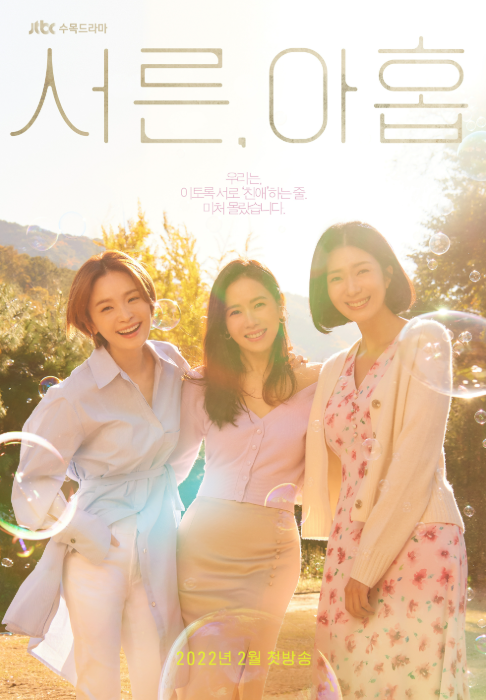
Thirty Nine was originally released in 2022 as a remake of the Chinese drama Nothing But Thirty. The South Korean adaptation features Son Ye-jin (from Crash Landing on You), Jeon Mi-do (from Hospital Playlist), and Kim Ji-hyun (from The Smile Has Left Your Eyes) and was directed by Kim Sang-ho.
When it came out, it was one of the top 10 most popular shows in the world for four weeks and the most watched international TV show on Netflix as well.
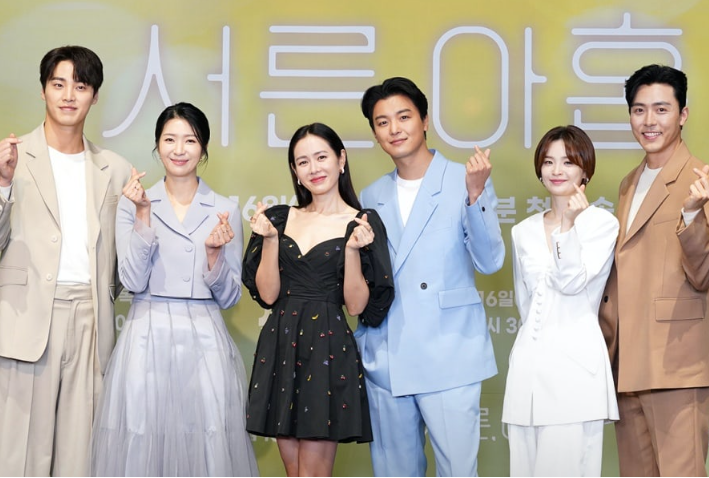
An Inseparable Trio
The plot centers around Cha Mi-jo, who was adopted by a wealthy family when she was very young and became a successful dermatologist in Gangnam. She is doing really well professionally, but has no plans to marry and is about to celebrate her 40th birthday, just like her two best friends: Jeong Chan-young, an acting coach, and Jang Joo-hee, who manages a cosmetics store.
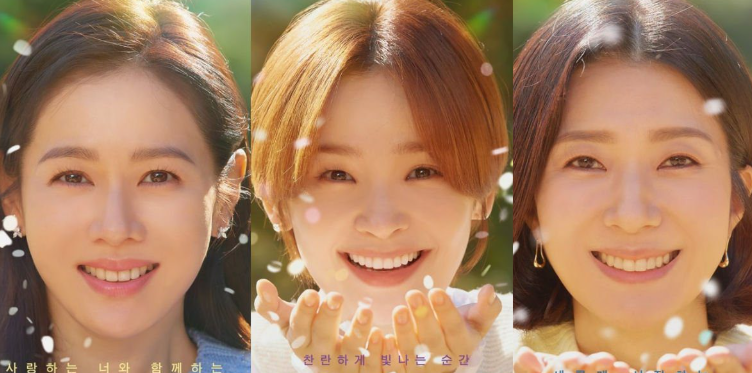
The three of them have been inseparable friends since they were kids and form the perfect trio: Mi-jo is the most practical and sensible, Chan-yung is direct and speaks her mind, and Joo-hee is the sweetest and shiest out of the bunch. They are not particularly worried about turning 40 because they have each other to overcome any challenges this new chapter in their lives could bring, as well as appreciate any joyous moments lurking around the corner.
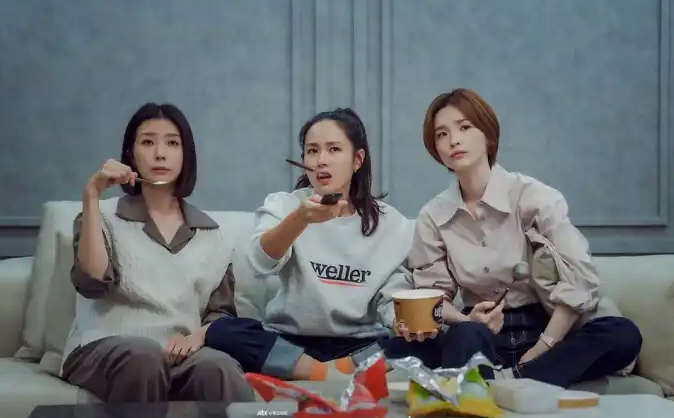
Are You Already Forty or Are You Only Forty?
This K-Drama stands out because it doesn't treat your 40s as if it were the end of your life. It's just a new cycle. Our protagonists have fun, do really well professionally, and, though one of them is in a controversial relationship, they're not too worried about being single, and the script doesn't make a big deal out of it either.
In a world where time and age weigh down on us constantly, particularly if you're a woman, and where society insists on seeing us as useless old hags once we turn 35 or 40, this TV drama decided to go another way. And that's great, even more considering it is a South Korean show, so it's from a country that still struggles with gender inequality, sexist standards, and strict expectations on what a woman should look like.
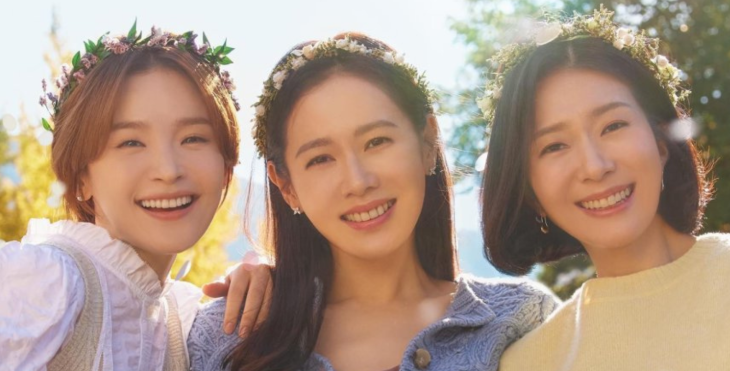
This TV show flips the script: instead of "they're already 40", it's "they're only 40". They still have a lot to live, explore, and laugh about. Time is not the enemy in this story, it's a friend. There's no bitterness, only nostalgic, bittersweet memories of everything they have gone through and peaceful acceptance of what's yet to come.
Our three protagonists show us this new way to deal with aging with a lot of grace, which is a breath of fresh air. Once again, in a world where being 40 means being invisible, where enjoying simpler things or having hobbies is considered childish and unusual, these three women show us it doesn't have to be this way. You don't have to renounce everything to become an adult. Chasing happiness is not a pointless endeavor but a right, even (or especially) when the world insists on telling you you're too old for that.
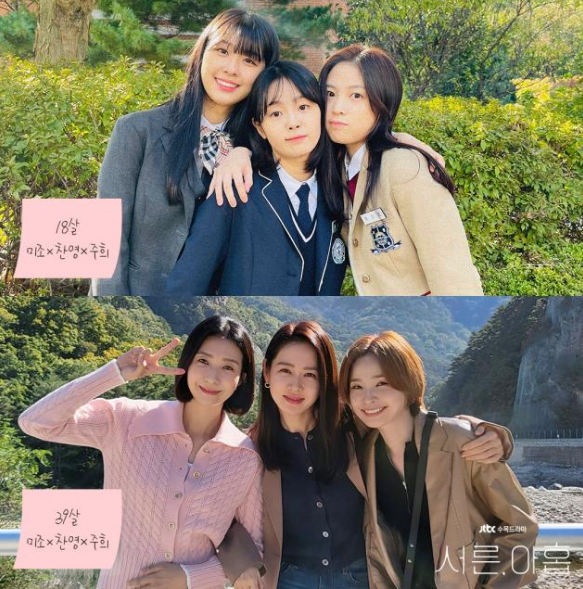
A Loss Haunts the Narrative
But it's not all perfect. Every story needs some conflict and drama, and this one tells us straight away that this trio will soon spring apart: one of our protagonists has a terminal disease. And, from the very start, the certainty she will die soon creates a painful empty feeling inside the other two surviving friends.
We, who walk alongside them on their journey, can sense a pang of sadness even in the light, warm moments. Whenever we see them together, laughing, supporting each other, and sharing their daily lives, we are painfully aware that one of them soon won't be there anymore. Each episode, despite how subtly funny and romantic it may be, and despite how captivating the subplot is to a point, feels like a goodbye and is surrounded by a melancholic feeling, like we're just waiting for time to pass.
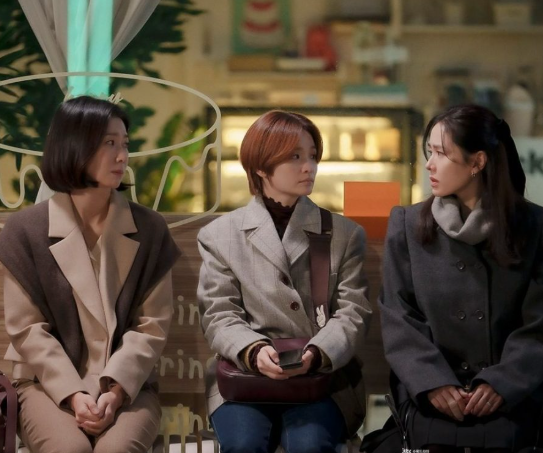
And, just like the characters surrounding the dying protagonist, we walk along with her until the end of the road. We suffer together. We wish, against all odds, for a miracle. That she can stay somehow. That the story changes. That life, just this time, makes an exception.
But Thirty Nine is not a fantasy K-Drama. It's about life and time, not how much of it you have left, but how much of it you still have, and about enjoying each day with the ones we love. Tomorrow is only a possibility - not a guarantee.
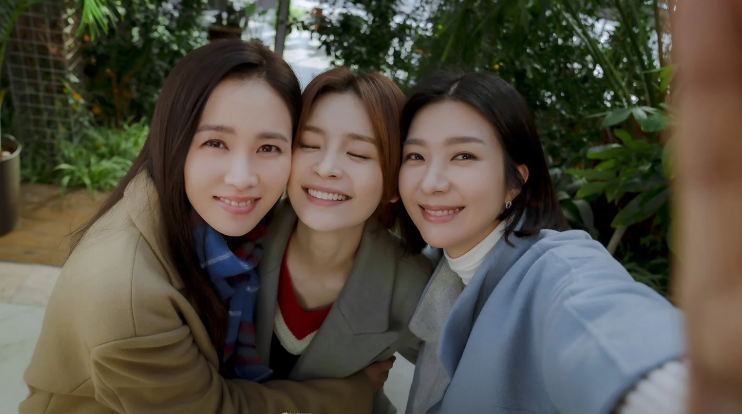
Subplot
The delicate adoption subplot flows along the show and doesn't weigh down on the main plot. It is even, at times, a much-needed relief considering how emotional the terminal disease story is. However, it is also just as relevant as the main plot: it is a sensitive and necessary perspective on what it means to truly belong somewhere.
This story brings light to the intimate and sometimes silenced feelings of adopted children who, even surrounded by love, may never really feel like they truly belong. The search for their biological parents, in these cases, is not only a simple curiosity: they're trying to find an answer for why they were abandoned and to understand why they feel so empty deep inside.
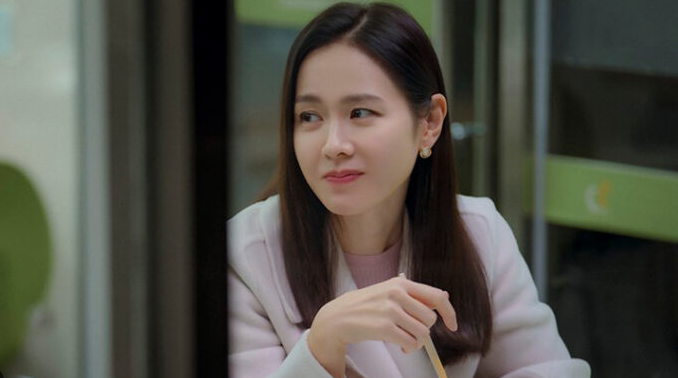
In other moments, this K-drama shows us another side to this, that is, when the adopted child is constantly reminded that they were adopted. When, besides being abandoned, the child has to carry the pain of a fragmented identity, split between the past they didn't get to pick and the future they still don't understand how to build.
Thirty Nine invites us to reflect on how, to adopt a child, we need to be highly emotionally intelligent. Calling a child your son or daughter is more than a noble gesture, it's a promise you'll always support them emotionally, that they'll belong and be loved. It is making sure that they know they have a place to stay now, despite any painful trauma they went through. And that they have someone to count on.
Romance? Yes, But Not That Much
This show features, yes, some romance, but it's not one of its main themes. The heart of Thirty Nine is the friendship between the three protagonists, which is the red string that pulls the story forward, makes the conflicts meaningful, and supports the narrative.
The romances between the characters act as a backdrop, almost, and either reveal something about the main characters or show what type of support or pain their partners give them. Nonetheless, when you watch this show, don't expect traditional love stories: only one of the couples could fit this mold, and even then they're very discreet.
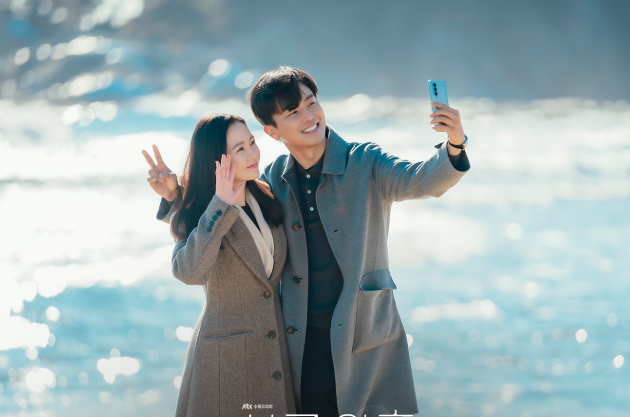
For instance, right at the beginning, Cha Mi-jo meets Kim Seon-u (played by Yeon Woo-jin). The two are attracted to each other, and, already on their third date, she goes to his apartment, where they sleep together. Please note that we're talking about adults, that is, an older couple, so they're not like over-the-top young lovers. That's why this plotline makes sense, though some viewers would have preferred more development before they finally got there.
In any case, they have a lot of chemistry, and Kim Seon-u is nice and charismatic. You can't help but like him. He is also quite supportive of Mi-jo when her friends aren't around.
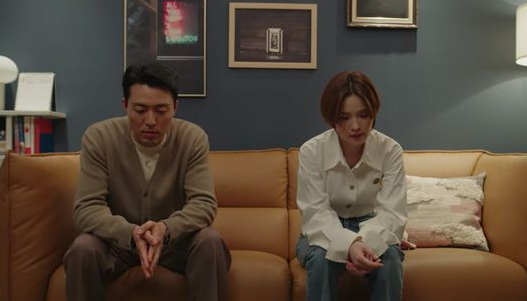
As for the second couple, Jeong Chan-young and Kim Jin-seok, it is a bit controversial, particularly in South Korea, where it was considered problematic. Kim Jin-seok is married and has a son, but he still goes out with Chan-young.
Their story began a long time before: they were in a relationship but eventually broke up because of his parents, who put a lot of pressure on him and were against him getting involved with an aspiring actress. Kim Jin-seok went abroad to study and ended up marrying another woman, though they're clearly unhappy. Though he still goes out with Chan-young, they're not physically involved. She does feel guilty, but not enough to stop seeing him.
Cha Mi-jo, naturally, is quite critical of this relationship, and she states clearly to her friend that she is wasting her time with a married man. The show leaves it up to us, the viewers, to decide where we stand on this issue, but, in any case, we all know this relationship will be full of pain.
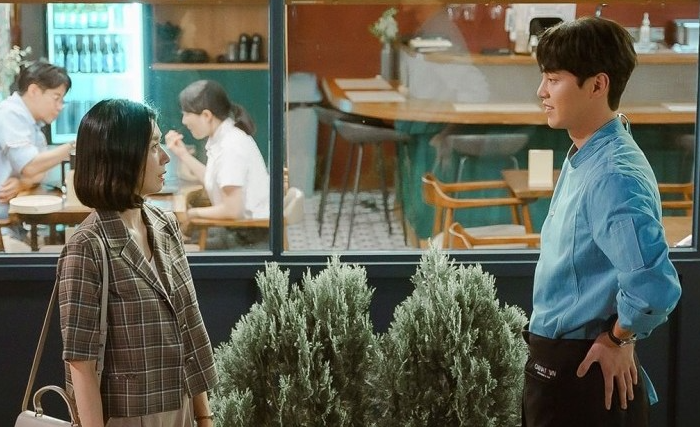
Finally, we have the lovable Jang Joo-hee, who has a "meet cute" with Park Hyeon-jun. He recently opened a Chinese restaurant close to where she lives. She falls in love with him from the start but believes she doesn't have a chance because he is younger than her and has a girlfriend. Still, a genuine and affectionate friendship forms between them, and they often end their days talking to each other and drinking. Jo-hee, by the way, even gives Hyeon-jun advice regarding his girlfriend, even though she knows their relationship isn't going well. That, of course, makes Cha Mi-jo and Jeong Chan-young angry, as they want their friend to eventually end up with the chef.
The scenes with Joo-hee and Hyeon-jun are sweet, light, and very fun. And Joo-hee, sweet and clumsy, makes us laugh whenever she opens her mouth. We can't help but like her too.
Love & Respect
Respect.
That's the word that comes to mind when I think about how these characters dealt with their terminally ill friend. That's because, though certainly it must have been unbearable for them to know someone they loved so much would leave them very soon, they had to, above all else, respect her choices.
Their friend gets diagnosed with stage 4 pancreatic cancer, which has a 0.8% survival rate even with chemotherapy, so she decides not to treat it. She knows that, even if she does treat it, she might only live another year. Without it, maybe six months. As such, she decides to use this time however she likes, and that doesn't include hospitals, cold beds, or collateral effects. She wants to be with those she loves. She wants to walk on the street and laugh with her friends. She wants to live, even if for just a short amount of time.
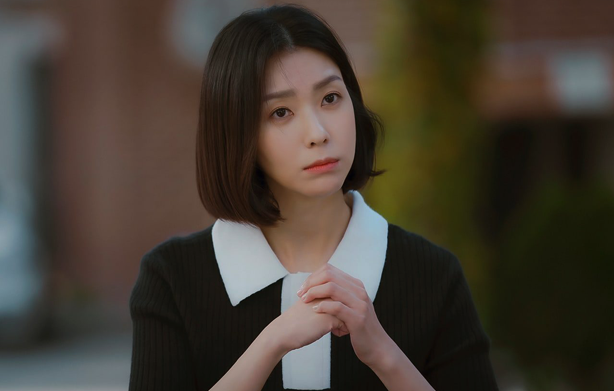
This decision is hard and nearly cruel for those who stay. Especially for one of her friends, who can't even imagine the world without her. This friend refuses to accept her decision and tries to argue against it, convince her somehow, and is quite insistent. But, after fighting with reality for a while, she finally understands. Or, better yet: she senses it. She notices that her friend's decision isn't just giving up. It's brave. And, even with her heart shattered, she accepts it. She respects it.
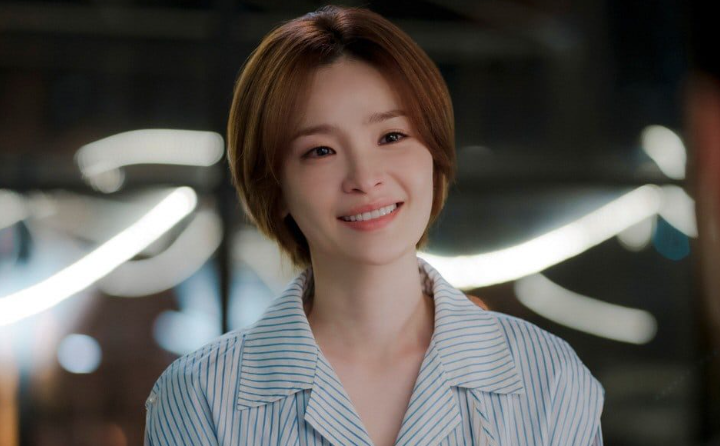
Together, they promise their dying friend one thing: that she'll be the happiest terminally ill patient in the world.
This scene is heartbreaking, even to the most stoic viewers. It makes us cry not just because of their painful loss but because of the real love between them. This rare, beautiful love that, even when faced with the end, decides to stay.
Reality
This is the bitter conclusion the dying friend comes to when she starts running out of time, her body starts to hurt, and it's time to tell her parents and her lover that she is dying.
The show definitely doesn't romanticize her choice. Instead, it shows the harsh reality of someone who decided to live her last few days lucid and in control of herself. We see her friends taking care of her diet, which is now severely restricted. We see how the others cry in secret to avoid looking weak. We even see how scared she is to tell her parents. She even imagines, as painful as this is, how their lives will become and how her friends' lives will become once she is no longer there.
The story also shows everything the disease takes from her bit by bit: the little moments of happiness in her daily life, her plans, and anything that seemed a given.
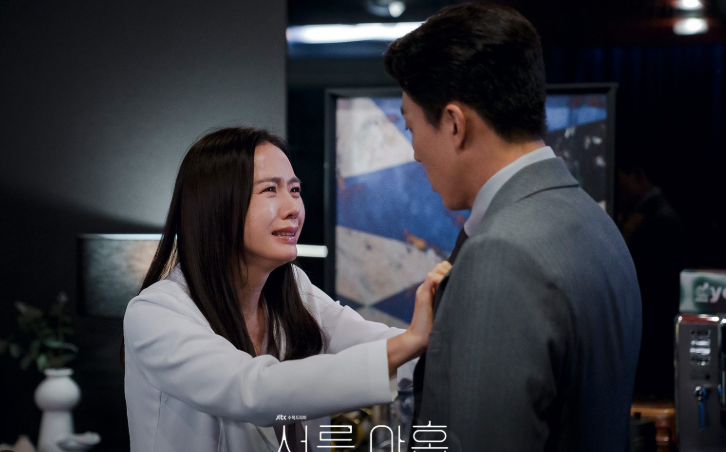
Nonetheless, it also shows how brave anyone who goes down this path becomes. We see her choose to finally do everything she postponed because now it seems possible. Now that she doesn't have much time left, she answers old questions - can I do it? - and she finds out that yes, she can. Because, after all, what would she have to lose?
In the final chapters, once we can see how sick she is just from her face, and she is clearly fragile, we see her preparing for the end: going to the studio to take pictures for the funeral, and setting up the funeral itself. Death is no longer abstract - it is real to her, to her friends, and to us.
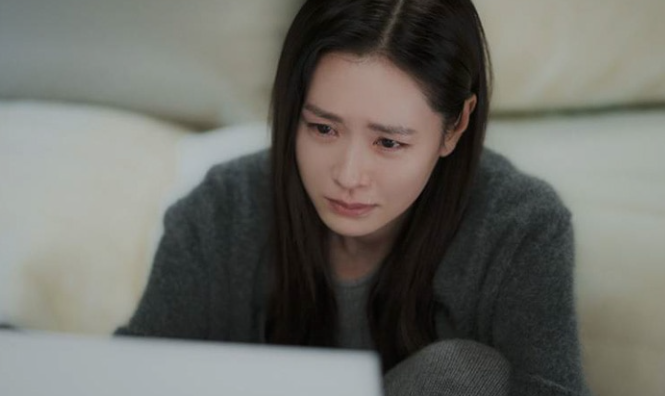
And that's when time becomes a silent character. It becomes cruel, and we want it to freeze. We want it to stop there, in that scene where they're all together in her parents' restaurant laughing, eating, and singing. When they're watching the first snow of the year fall outside through the window.
But time never stops.
Spring always comes.
And, with it, rebirth and loss.
Is It Worth a Watch?
This show is great, but it has a few small flaws. If it weren't for them, it would be perfect.
One of them is the adoption subplot. It plays out really well when we see it through the lens of one of the supporting characters, as it touches on important, profound questions. However, when we see it through the lens of the protagonist, it becomes just an excuse for a few of her insecurities. Other than that, it contributes very little to the main plot centered around the terminally ill friend. It is so irrelevant that, when there's a problem with her biological mother, it is fixed with a single conversation, as simple as that.
Another plotline that was quite disappointing to me was how the relationship between Jang Joo-hee and Park Hyeon-jun ended. Up until nearly the last episode, they were just good friends, drinking buddies who gave each other advice. In the last episode, Joo-hee is shown answering a call from him in a very intimate way, and then, in another scene, she says they're in a serious relationship. And that's it. There's no transition, no scenes showing what happened. It's a pity because they were an adorable pair and deserved a better ending, perhaps even more development.
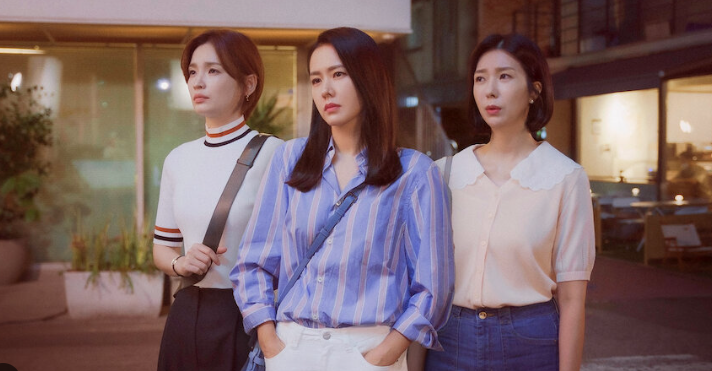
The third flaw isn't exactly a flaw, but a questionable plot decision - the way Jang Joo-hee is treated by Cha Mi-jo and Jeong Chan-young. Though they say they're inseparable, it is clear Mi-jo and Chan-young are much closer with each other, and they frequently push Joo-hee aside from important conversations and decisions. At a certain point, Chan-young is thanking the people in her life that supported her and mentions Mi-jo and Kim Jin-seok, but forgets Joo-hee. And Joo-hee was by her side more often than her ex-boyfriend.
The show itself comments on this when Joo-hee confesses to Mi-jo that she feels pushed aside by them. So, it's not an accidental flaw, it was intentional. Still, it sounds a bit contradictory when the three of them talk so highly of their friendship and the profound bond between them because they don't always treat each other with the same respect.
Other than that, Thirty Nine is worth a watch, but bring lots of tissues if you want to follow these three women along as they face the delicate line between 39 and 40 years old... and as they say their goodbyes.
Would you give it a try, or do you prefer happy endings? Tell us your thoughts in our comment section below.
Thank you for reading, and see you next time!
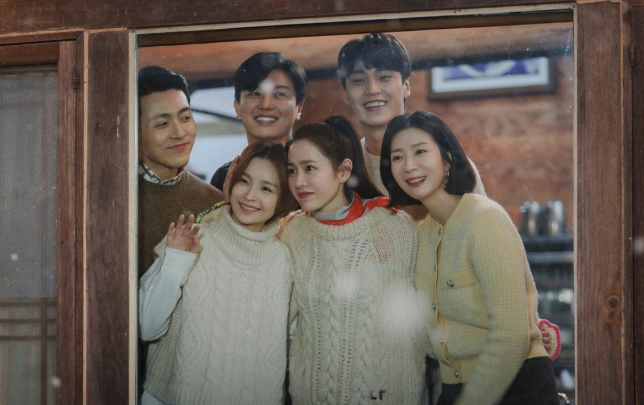








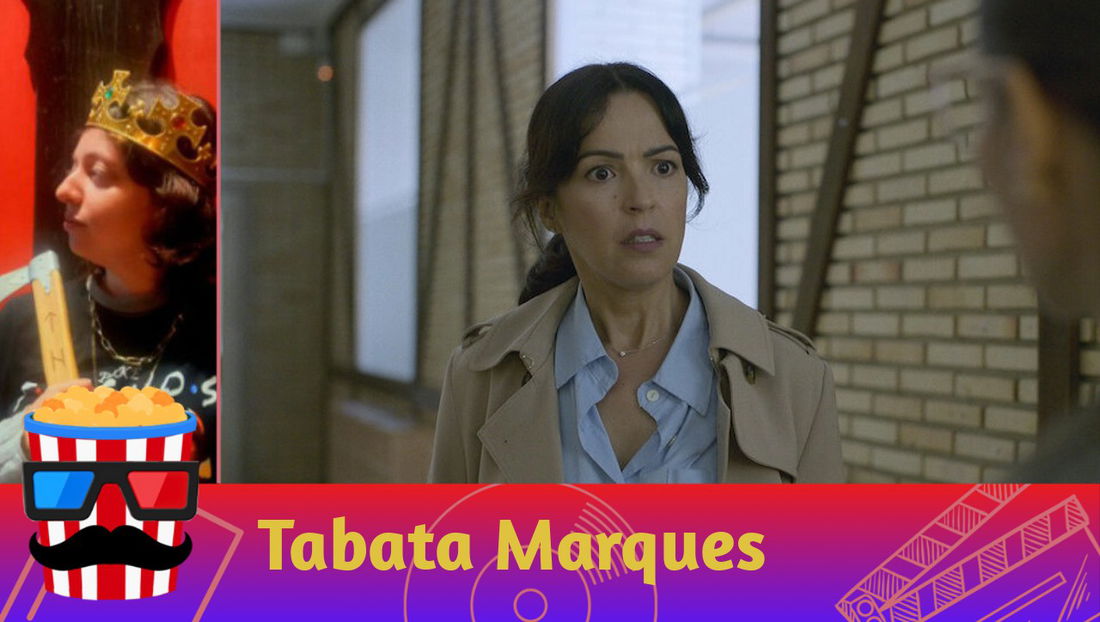




— コメント 0
, 反応 1
最初にコメントする